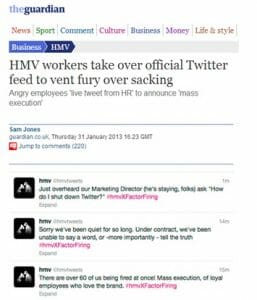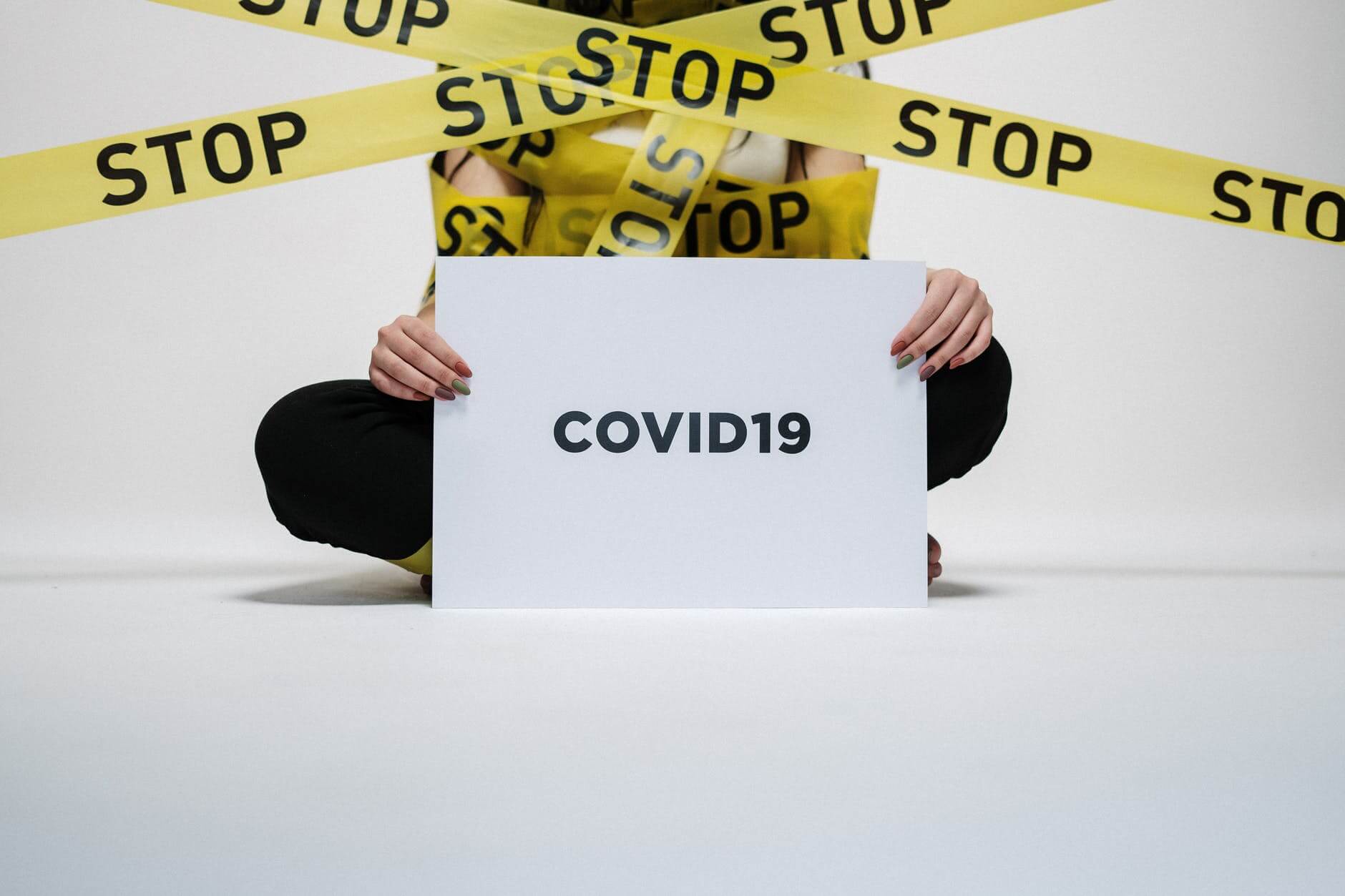 Last week’s Twitter fiasco at HMV gave us all a clear demonstration of how brands should not to act in a crisis.
Last week’s Twitter fiasco at HMV gave us all a clear demonstration of how brands should not to act in a crisis.
After the sad news that huge numbers of workers were told that they were being made redundant, angry employees, who were still able to access the brand’s Twitter account, used the site to let the world know exactly what was happening to them and this caused huge embarrassment for their bosses and the administrators.
The company has of course since deleted the tweets, but in letting the incident take place at all, they have created a mini-PR disaster for themselves again. Surely, when going through a mass redundancy process such as this the people who make the decisions should have considered locking down a number of the channels including the main website and all the necessary social media. I am also not convinced that deleting the tweets was a good idea either as once they are out there – you can be sure someone has got them and deleting them then becomes a story within itself.
As Pete Sigrist, guest columnist for The Drum, stated: “The fact that this sort of Twitter fiasco can still happen is farcical. It’s hard to believe that, in 2013, social media lessons remain to be learned.”
HMV has proved with this episode that, amazingly, there are still some companies who are unaware of how powerful and potentially dangerous social media really is and how it can affect your brand both positively and negatively. It really is shocking that people are still sticking inexperienced interns in charge of the social media without any safeguard processes at all. Did a well known brand like this not have a social media policy?
We all know this is not the first time it has happened and it certainly won’t be the last as Gordon McMillan highlights the example of Habitat in 2009, but that was when social media was still relatively in its’ infancy. By now, brands should know better and have practices in place to ensure it doesn’t all go wrong quickly. Even if it does go wrong there should be people in the building who know how to respond appropraitely.
Two vital mistakes were made in this instance, which senior figures failed to recognise and have now found to their cost. Firstly, they failed to lock down all of their social media feeds, or even remove the people in charge of the networks without changing the passwords which meant that disgruntled workers could easily login and “hack” the account and vent their displeasure at how they were being treated, describing it as a “Mass Execution” in one post.
The tweets also targeted specific members of staff, such as one that said “Just overheard our Marketing Director ask ‘How do I shut down Twitter?’” with the hashtag ‘hmvXFactorFiring.’
Secondly, they failed to act responsibly for what the company publishes on its’ social media channel.
By giving employees and interns a free reign over its social media, the company created the crisis themselves. Working in Online Public Relations in 2013 I find it truly astonishing that a company of this size would not have more safeguards when it comes to situations like this, as they are fully responsible for what gets published on there and are accountable. Imagine if the staff had really gone to town and had some fun with it they could have really done some damage.
In taking precautions with regards to social media, such as checking who can use the account, they could easily have managed the situation of having to make so many people redundant without risking the embarrassment. However, that wouldn’t have stopped employees venting their displeasure on their own social media but it certainly would have made this process less embarrassing. The whole HMV thing has left a bad taste in the mouth, first there was the voucher PR disaster and now this. I feel sorry for the staff but I am not stupid and I (like all of us) realise that the HMV business model is out of date and needs to change in order to compete. The HMV brand needs to emerge from this whole process is a leaner business with an effective online marketing model as I don’t think any of us wants it to die out entirely. One thing is for sure its certainly given me some content to discuss at our Online Crisis Management seminar at the end of this month.
Let’s hope the brand hasn’t been damaged too much and those poor employees get looked after better.
Chris Norton is the founder of Prohibition and an award winning communications consultant with more than twenty years’ experience. He was a lecturer at Leeds Beckett University and has had a varied PR career having worked both in-house and in a number of large consultancies. He is an Integrated PR and social media blogger and writes on a wide variety of blogs across a huge amount of topics from digital marketing, social media marketing right through to technology and crisis management.


